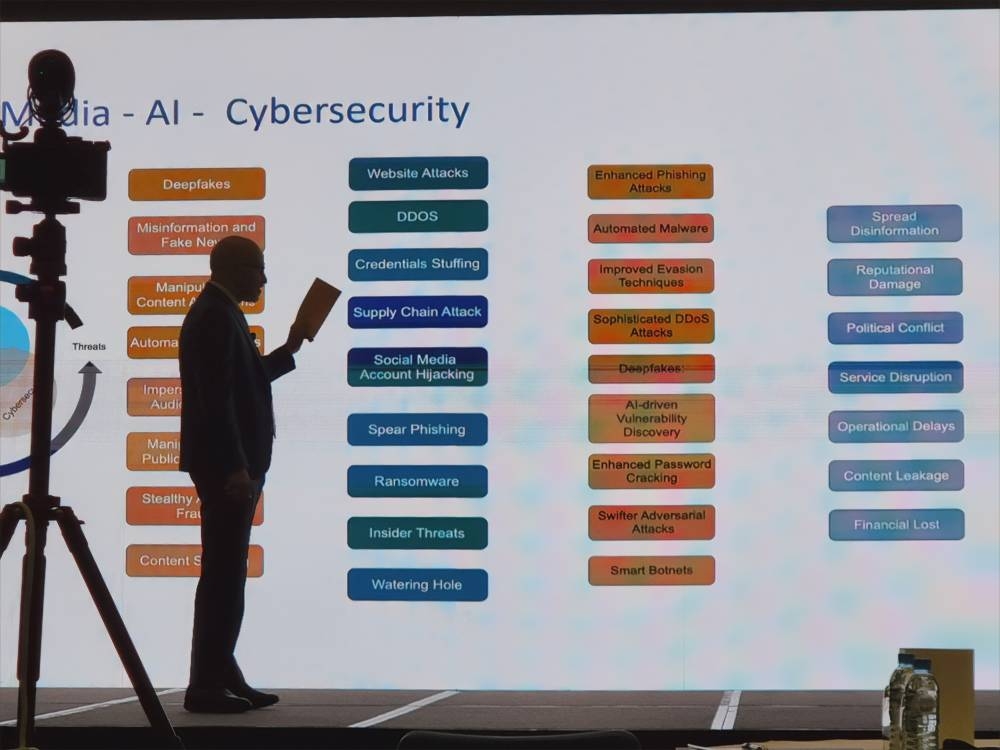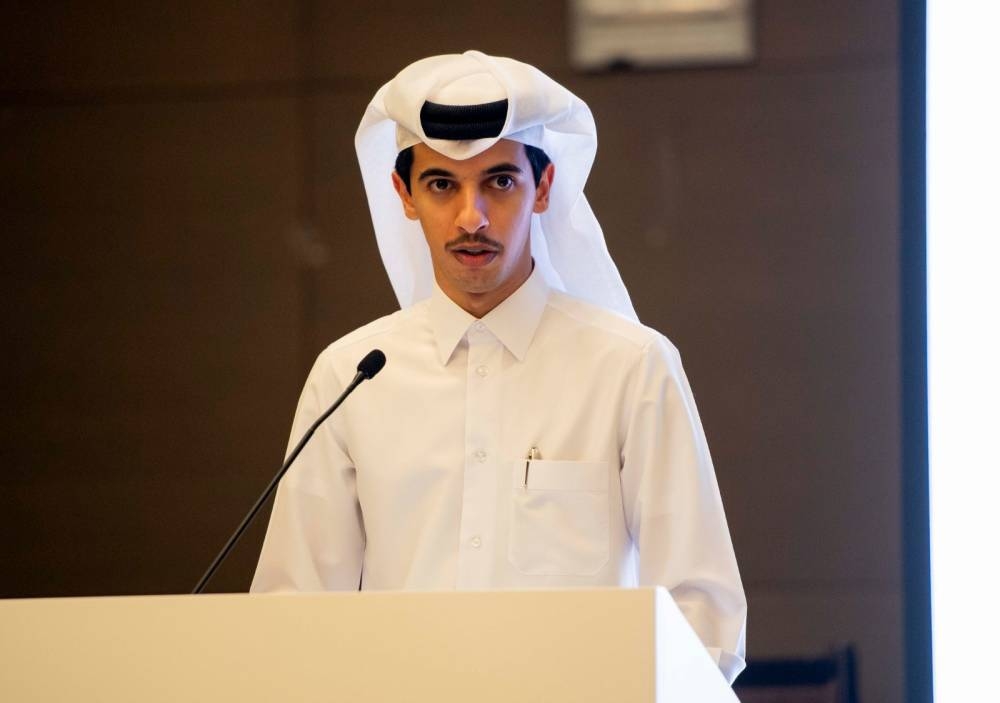The National Cyber Security Agency (NCSA) organised a workshop for journalists on artificial intelligence (AI) on November 2, aimed at educating stakeholders and raising awareness about the potential risks and opportunities linked to the adoption of such technologies in the media sector.
The event, titled “Risks of AI in the Media Sector” witnessed the participation of both government and private media entities. Speaking on the sidelines of the workshop, NCSA’s Cyber Security Strategies and Policies director Abdulrahman al-Shafi highlighted the need for such activity, particularly in light of the emergence of technologies like Deepfake and the increasing role of AI in the media field.
“The importance of having this workshop is (because) in recent years, there has been the introduction of emerging technologies such as AI and more specifically, the ‘Deepfake’ technology, where it harms probably some of the security controls.
“We believe that the media sector will benefit from having an awareness session about what are the cyber risks and threats they are facing when it comes to AI,” he said, noting that the use of AI in the media and content industry comes with a multitude of associated risks and threats.
Regarding the safety of media outlets in Qatar from such threats, al-Shafi cited the agency’s mission in safeguarding the critical infrastructure and information of the State, with the media sector being a key component of this effort.
The initial step, he noted, should involve recognising the specific risks and threats that they may encounter. Once aware of the nature of these potential challenges, he noted that they can then take proactive measures to be prepared and effectively address them.
The workshop shed light on the growing reliance on digital media, which AI directly influences. It also proposed measures to mitigate these risks through specific recommendations.
Speaking at the workshop, Buthaina Thani al-Khulaifi from NCSA’s Cyber Operations Department underscored the significance of utilising technologies such as AI to protect copyrights and privacy, and combat threats using algorithms. Her presentation also stressed the significance of issuing certifications, providing awareness education, and developing legal frameworks.
The workshop also tackled cyber threats related to AI and their impact on the media sector, including fraud, data leakage, and personal privacy breaches. It also discussed strategies for addressing these challenges, as well as procedures for responding to cyber incidents and implementing recovery mechanisms.
Mounir Kamal from the National Cyber Governance and Assurance Affairs, in his lecture titled “Risks of AI in the Media Sector,” spotlighted the importance of not only identifying potential threats but also recognising opportunities in using these advanced technologies, particularly AI. He pointed out that Qatar’s media sector - which includes print and online media, news agencies, and broadcast, among others - being highly critical, has been subject to persistent cyber threats since 2008.

The workshop tackled cyber threats related to AI and their impact on the media sector. PICTURE: Joey Aguilar

NCSA’s Cyber Security Strategies and Policies director Abdulrahman al-Shafi at the workshop yesterday. PICTURE: Noushad Thekkayil

